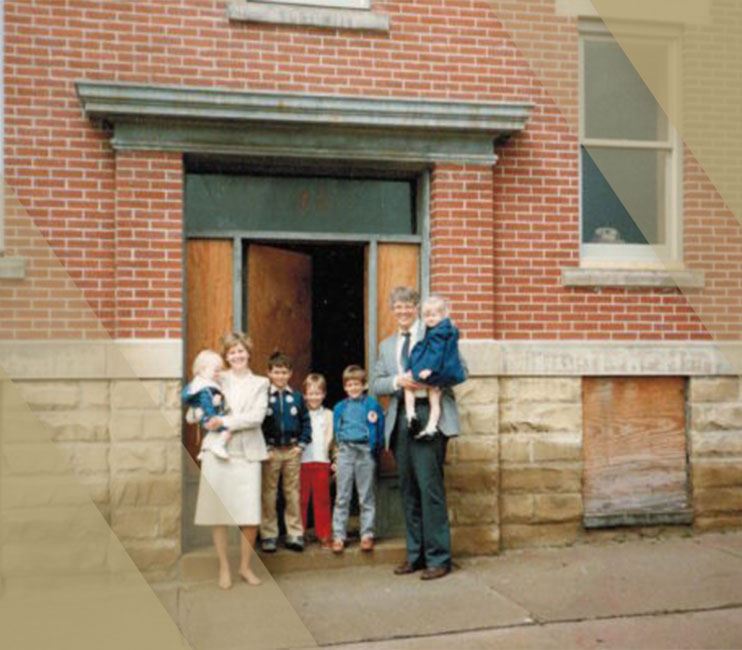How Mediation Helps Resolve a Divorce Settlement in Columbus
There are several key advantages to choosing divorce mediation in Columbus:
- Greater control over outcomes: Unlike in court, where the judge makes the decisions, mediation allows spouses to have the final say in their agreement, helping preserve important priorities.
- Faster and often more cost-effective: Mediation usually requires less time than litigation, reducing the number of billable attorney hours and legal costs for families.
- Confidential proceedings: Matters discussed in mediation remain private, while information from courtroom proceedings may become part of the public record — an especially important consideration for sensitive family matters.
- Flexible scheduling: Mediation offers families the ability to set sessions around work, school, and other obligations, instead of being tied to the court docket or a judge’s calendar.
- Collaborative and healing environment: Mediation encourages open communication and problem-solving, which can be especially helpful for spouses who will continue to co-parent or interact down the road.
- Guidance from experienced mediators: The process benefits from neutral third parties with knowledge of solutions that have worked in similar Columbus-area cases, offering local insights that can streamline the discussion and agreement process.
If you are looking for a divorce mediation attorney in Columbus, our firm can help you navigate the process with personalized care. During mediation, we guide you through sensitive discussions and ensure that your rights and interests are represented at every stage. Because the Franklin County Court of Common Pleas handles domestic relations cases within Columbus, working with an attorney familiar with local procedures can help you resolve issues efficiently and avoid unnecessary delays.
Why Mediation?
Sometimes it just takes a neutral third party to break a logjam. This can be particularly true when the Columbus mediation attorneys involved have substantial experience, which means they can draw on solutions that may have been found in similar situations and apply them anew.
Mediation is typically more cost-effective than going to court. The period of time it takes for litigation to unfold is usually longer, which means more attorney hours in preparation. Mediation offers the very reasonable hope of a quicker resolution.
When a divorce goes to court, the judge is in control and has the final say. In mediation, the spouses are in control. While a mediator is there to make suggestions and create avenues for dialogue, it is the spouses alone who have the final say in what the final agreement looks like
The spouse controls the scheduling of mediation sessions. A spouse who has a hectic schedule filled with work and family commitments may appreciate being able to schedule mediation when it works for them. In court, that is not an option.
Everything said in mediation stays confidential, whereas information revealed in litigation becomes a part of the public record. Couples, especially those with children, may prefer that the personal nature of their disagreement be kept private.
By its very nature, mediation means the spouses are working together. Given that a breakdown of communication is often both a cause and effect of the divorce itself, being able to collaborate can be healing for the spouses as they move to the next chapter of their lives—a chapter that may require them to continue collaborating, at least if minor children are involved.
What happens in mediation stays in mediation. The spouses and the mediator are bound by confidentiality. Spouses may prefer to have their personal issues stay that way. This can be particularly true when children are involved.
The collaborative nature of mediation means the spouses are working together. This allows for a healthy way to end one chapter of life and begin a new one. If the spouses will still be raising children together, the need to get the new chapter off to a good start is even more important. Mediation can help.
A divorce mediation lawyer in Columbus can help you communicate effectively during negotiations, making it easier to reach compromises on issues such as property division or parenting plans. With insight into Ohio family law and the local Columbus court system, your mediator can offer perspectives that are tailored to your specific situation and the expectations of local judges.
What to Expect From the Divorce Mediation Process in Columbus
For many couples, beginning the mediation process can feel uncertain because it is different from traditional courtroom proceedings. In Columbus, the process usually begins with both spouses meeting the mediator in a neutral space, either private offices or a facility near the Franklin County government center. The mediator explains how sessions will be conducted, outlines confidentiality rules, and answers any preliminary questions. This initial step helps establish a collaborative and respectful tone for what lies ahead.
Throughout each mediation session, both parties are encouraged to share their concerns and goals. The mediator does not act as a judge, but instead helps both sides clarify points of disagreement, identify possible solutions, and keep discussions focused and balanced. This allows spouses to directly influence decisions about parenting, finances, or property, in contrast to a court-driven process.
Couples often appreciate the flexibility in scheduling, as it lets them work around obligations such as work or their children’s school activities. If you are working with a divorce mediation attorney in Columbus, that professional’s familiarity with Franklin County court forms and requirements can streamline the final step: preparing and filing agreements with the domestic relations division. By understanding each part of the mediation process, spouses can enter discussions more confidently and with realistic expectations.
Call our Columbus mediation lawyers today at (614) 665-5833 or reach out online to set up a consultation.



